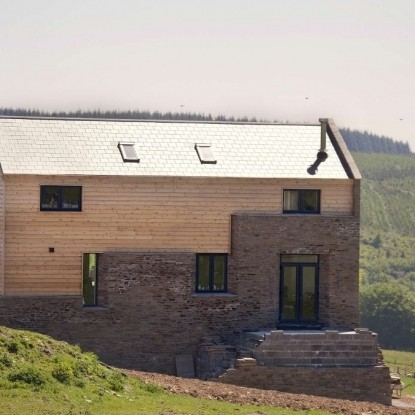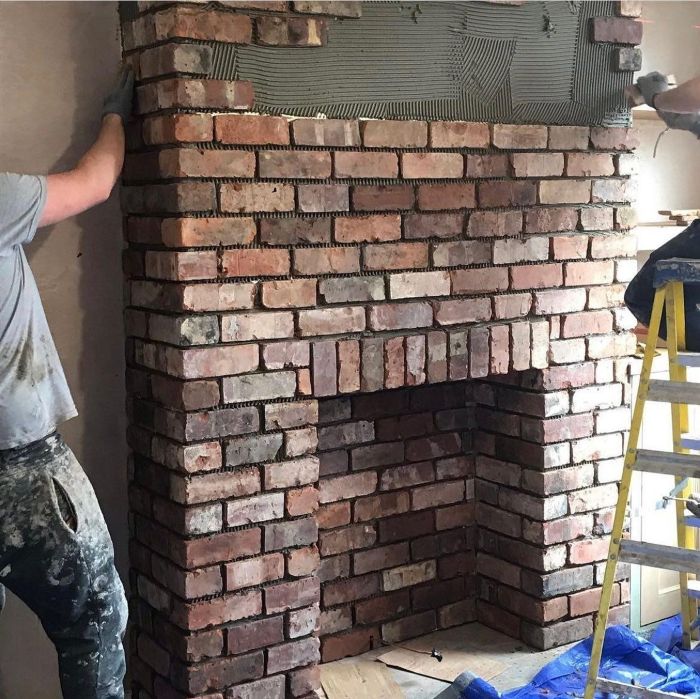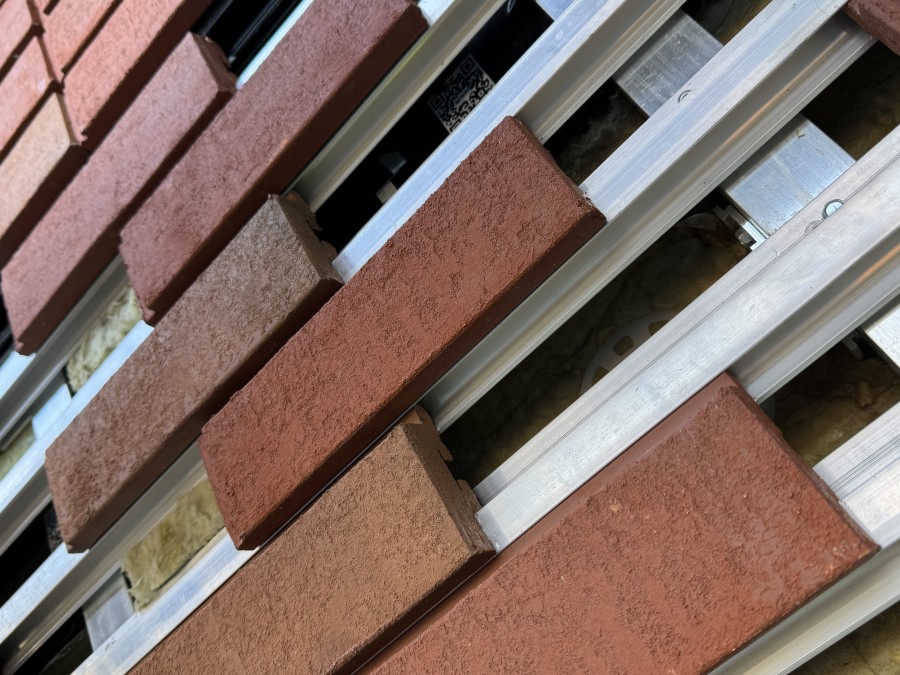
An innovative house in South Wales is combining multiple energy efficient technologies, including ThermaSkirt heated skirting board, in a bid to provide self-sufficient, renewable energy generation and water resource solution in an off grid setting.
The flagship project has been jointly developed by SSE, Caerphilly County Council and BRE (Building Research Establishment) and is undergoing monitoring to establish the viability of future off-grid homes. The ThermaSkirt product was specified due to its compatibility with renewable energy sources such as solar and biomass, and its high heat transfer ability with low running temperature make it an energy efficient alternative to conventional radiators.
The off-grid house project was conceived due to the Davies family needing to relocate closer to the livestock they keep on the South Wales hills near Manmoel. Planning permission was granted for a two storey dwelling in May 2011 and due to being completely ‘off-grid’ for electricity, gas and water the opportunity was taken to test a combination of renewable energy technologies and gain insight on the impact of living and running a business sustainably.
Hot water is produced via a 20kW biomass boiler that is fuelled using the family’s own woodland that surrounds the property providing a self sufficient supply of logs. The hot water is then circulated through the heated skirting board to provide an even heat to the perimeter of each room. The compact design of ThermaSkirt allows it to free up space that would otherwise be taken up by wall-mounted radiators.
The system is easy to fit in any type of room with none of the disruption associated with installing underfloor heating. ThermaSkirt achieves a similar heat pattern as that of underfloor heating and has an equally rapid response to changes, with each room being controlled separately in seven different zones.
In a recent study ThermaSkirt was used to investigate the efficiency of heated skirting boards compared to traditional radiators. It was found that ThermaSkirt had a 50% higher heat transfer coefficient of 12.6 W/m² °C compared with the 8.4 W/m² °C of conventional panel radiators. The high transferred convective heat flux is due to the low fitted position of the radiant baseboard combined with the exposure of colder air along the entire length of the skirting board increases the thermal gradient and its ability to transfer heat to the room.
The project will be monitored over a three year period under the Exemplar Programme run by Construction Excellence Wales with the generation and consumption of electricity, heat and water being constantly measured to provide valuable data on sustainable living.




















